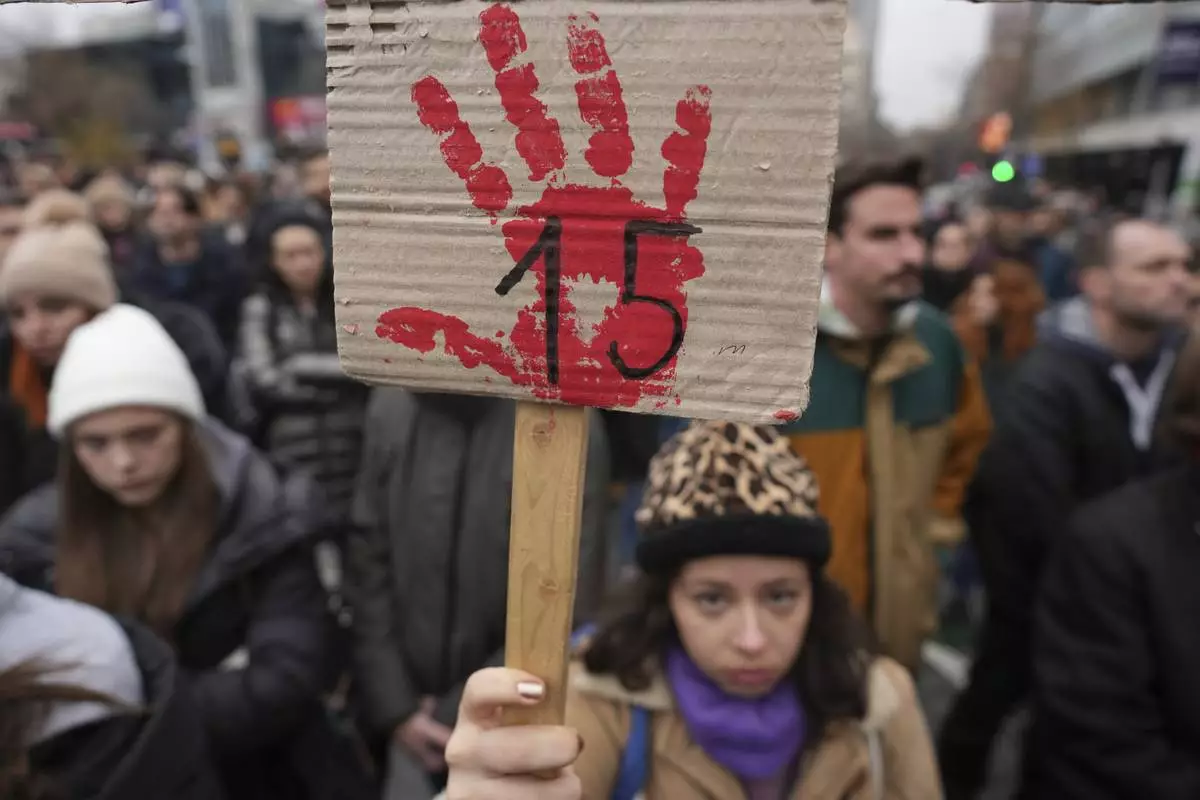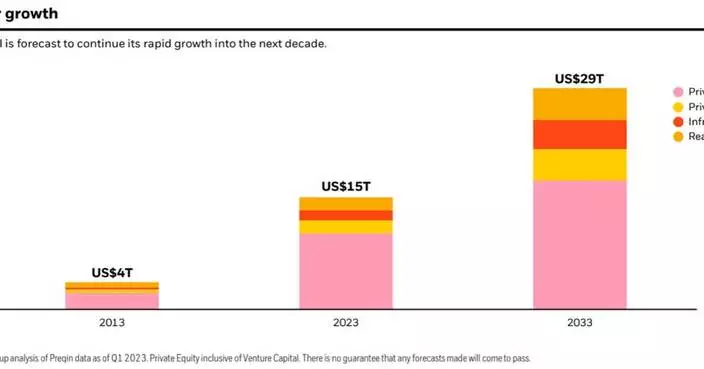HARRISBURG, Pa. (AP) — The new year will usher in the bitcoin-friendly administration of President-elect Donald Trump and an expanding lobbying effort in statehouses that, together, could push states to become more open to crypto and for public pension funds and treasuries to buy into it.
Proponents of the uniquely volatile commodity argue it is a valuable hedge against inflation, similar to gold.
Many bitcoin enthusiasts and investors are quick to criticize government-backed currencies as prone to devaluation and say increased government buy-in will stabilize bitcoin's future price swings, give it more legitimacy and further boost an already rising price.
But the risks are significant. Critics say a crypto investment is highly speculative, with so much unknown about projecting its future returns, and warn that investors should be prepared to lose money.
Only a couple public pension funds have invested in cryptocurrency and a new U.S. Government Accountability Office study on 401(k) plan investments in crypto, issued in recent days, warned it has “uniquely high volatility” and that it found no standard approach for projecting the future returns of crypto.
It has already been a landmark year for crypto, with bitcoin hitting $100,000, the U.S. Securities and Exchange Commission approving the first exchange-traded funds that hold bitcoin and crypto enthusiasts being cheered by Trump's promise to make the United States the “bitcoin superpower” of the world.
Lawmakers in more states can expect to see bills in 2025 to make them crypto-friendly as analysts say crypto is becoming a powerful lobby, bitcoin miners build new installations and venture capitalists underwrite a growing tech sector that caters to cryptocurrencies.
Meanwhile, a new crypto-friendly federal government under Trump and Congress could consider legislation from Sen. Cynthia Lummis, R-Wyoming, to create a federal bitcoin reserve on which states can piggyback.
A bill introduced last month in Pennsylvania's House of Representatives sought to authorize the state's treasurer and public pension funds to invest in bitcoin. It went nowhere before the legislative session ended, but it caused a stir.
“I had a friend who is a rep down the road text me, ‘Oh my god, I’m getting so many emails and phone calls to my office,' more than he ever did about any other bill,” said the measure's sponsor, Republican Mike Cabell.
Cabell — a bitcoin enthusiast who lost his reelection bid — expects his bill to be reintroduced by a colleague. And leaders of bitcoin advocacy group Satoshi Action say they expect bills based on their model bill to be introduced in at least 10 other states next year.
Keith Brainard, research director for the National Association of State Retirement Administrators, said he doesn’t expect many public pension fund investment professionals, who oversee nearly $6 trillion in assets, to invest in crypto.
Pension fund professionals take risks they deem to be appropriate, but bitcoin investing has a short track record, might only fit into a niche asset class and may not fit the risk-to-reward profile they seek.
“There might be a bit of dabbling in bitcoin,” Brainard said. “But it’s difficult to envision a scenario in which pension funds right now are willing to make a commitment.”
In Louisiana, Treasurer John Fleming helped make the state the first to introduce a system by which people can pay a government agency in cryptocurrencies.
Fleming said he's not trying to promote cryptocurrency, but rather sees the step as a recognition that government must innovate and be flexible in helping people make financial transactions with the state. He said he would never invest his money, or the state's, in crypto.
Fleming recalled meeting with a bitcoin lobbyist recently and came away unconvinced that bitcoin makes for a good investment.
“My concern is that at some point it’ll stop growing and then people will want to cash in,” Fleming said. “And when they do, it could tank the value of a bitcoin.”
In Pennsylvania, Treasury Department officials said they have the authority to decide for themselves if cryptocurrencies meet the agency's investment standards under state law and don't need new legislation.
Still, a highly volatile asset is ill-suited to the agency's need for predictability, considering it writes millions of checks a year. The overwhelming majority of the roughly $60 billion it invests at any given time is in short-term, conservative investments designed for an investment period of months, officials there said.
Pension boards, which invest on a 30-year time horizon, may already hold small investments in companies involved in mining, trading and storing cryptocurrencies. But they have been slow to embrace bitcoin.
That could change, said Mark Palmer, managing director and a senior research analyst at The Benchmark Company in New York.
Pension boards got investment tools they like this year when the U.S. Securities and Exchange Commission approved the first exchange-traded funds that hold bitcoin and, in October, approved listings of options on those funds, Palmer said.
Many “are likely in the process of getting up to speed on what it means to invest in bitcoin and kicking the tires, so to speak, and that’s a process that typically takes a while at the institutional level,” Palmer said.
Several major asset managers like BlackRock, Invesco and Fidelity have bitcoin ETFs.
In May, the State of Wisconsin Investment Board became the first state to invest when it bought $160 million worth of shares in two ETFs, or about 0.1% of its assets. It later scaled back that investment to $104 million in one ETF, as of Sept. 30. A spokesperson declined to discuss it.
Michigan's state investment board later reported about $18 million in bitcoin ETF purchases while a candidate for New Jersey governor, Steven Fulop, said that if elected he would push the state's pension fund to invest in crypto.
Fulop, the Democratic mayor of Jersey City, just across the Hudson River from Manhattan, has been preparing for months to buy bitcoin ETF shares for up to 2% of the city's $250 million employee pension fund.
“We were ahead of the curve," Fulop said. “And I think that’s what you’re eventually going to see is this is widely accepted, with regard to exposure in all pension funds, some sort of exposure.”
Follow Marc Levy on X at: https://x.com/timelywriter.

FILE - Chris Radwanski, data center supervisor, checks on Bitcoin mining machines in a shipping container behind the Scrubgrass Power plant in Russellton, Pa., July 23, 2021. (Andrew Rush/Pittsburgh Post-Gazette via AP, File)

FILE - An advertisement of Bitcoin, one of the cryptocurrencies, is displayed on a building in Hong Kong, on Nov. 18, 2021. (AP Photo/Kin Cheung, File)











